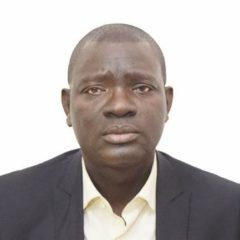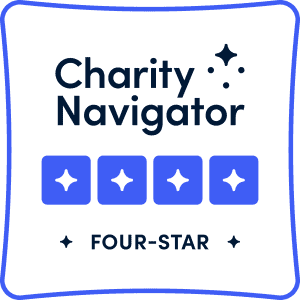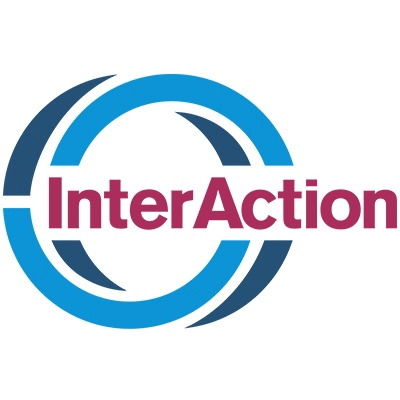Senegal
Our Work in Senegal
The Hunger Project has worked in Senegal since 1999 and is currently mobilizing community partners to end their own hunger and poverty. Through our integrated approach to rural development, the Epicenter Strategy, we work with community partners to successfully access the basic services needed to live an independent life and achieve internationally agreed markers of success, such as the Sustainable Development Goals.
Through our proven epicenter approach, we have contributed to building community development dynamics in 10 epicenters. These communities, guided by our community-centered and gender-focused approach, have made significant progress, with 9 epicenters reaching self-sufficient status. Equipped with acquired knowledge and skills, these epicenters are now able to support their communities in accessing adequate food in quantity and quality.
Building on this success, our current strategy aims to promote sustainable food and nutritional security by supporting community initiatives, particularly those led by young people and women, within rural communities. We strengthen their capacities and facilitate the creation of partnerships through multi-actor platforms and alliances with actors such as the State, civil society organizations, the private sector and technical and financial partners. By influencing public policies and actions at local and national levels, we aim to create a lasting impact on the food and nutrition security of our communities.
Current Initiatives and Partnerships
In response to the urgency to collaborate and promote local leadership in the fight against hunger, The Hunger Project engages in partnership with rural producers, placing a particular emphasis on the empowerment of youth and women. In addition, we support the establishment of partner platforms and encourage multi-stakeholder dialogue to support community initiatives, particularly those focused on gender and included in the Territorial Food and Nutritional Plans developed by the municipalities. These actions are in perfect correlation with our strategic plan, offering a targeted response to priority challenges in terms of food security, nutrition and maternal and child health in Senegal. They contribute significantly to achieving the goals set out in our strategic plan, while closely aligning with the Sustainable Development Goals.
In summary, partnerships with local stakeholders are essential to achieve the Sustainable Development Goals (SDGs). By working together in the areas of food security, nutrition and maternal and child health, we directly contribute to several SDGs, including SDG 2 (Zero Hunger), SDG 3 (Good health and well-being ), SDG 5 (Gender Equality) and SDG 17 (Partnerships for the Goals). These collaborations strengthen our collective capacity to address complex challenges and create a more just and sustainable future for all.
Nutrition and Food Safety
In the field of nutrition and food security, we intervene through the Global Alliance for Sustainable Nutrition project. Our commitment aims to combat malnutrition and promote the general well-being of the community. To do this, we strengthen the capacities of community health workers by providing them with training on internationally recognized strategies such as Multiple Micronutrient Supplementation (MMS), Essential Nutritional Actions (ENA) and WASH (Water, Sanitation and Hygiene). ). This approach aims to improve community health and well-being while strengthening communication and resource management skills.
Maternal and Child Health
Regarding maternal and child health, our Maternal and Child Care Strengthening project aims to strengthen the capacities of health workers and community stakeholders through training in maternal and child care, strengthening health development committees through training in resource management and mobilization, as well as equipment support in health posts. We also attach paramount importance to partnership in this area, working closely with local authorities in the areas of intervention, as well as with qualified and competent institutions such as the Podor Health District, health posts, the health insurance mutual. health and other organizations working in the fields of health and food safety.
Gender
Regarding women’s empowerment, we promote women’s access to resources, education and training and help strengthen their role in decision-making within their community. We also encourage women-led economic initiatives, such as agricultural cooperatives and small businesses, to promote their financial independence and self-reliance. By strengthening women’s leadership and giving them a voice in decision-making processes, we help create more inclusive and equitable communities.
Climate Change and Biodiversity
In the area of climate change, we have taken important steps to help communities face environmental challenges. We have implemented training programs in agroecological practices, aimed at raising awareness among farmers about sustainable and climate-resilient agricultural methods. These trainings cover techniques such as agroforestry, soil conservation and water management, enabling farmers to better adapt to changing climate conditions and preserve soil fertility. By strengthening the knowledge and skills of farmers, we help mitigate the adverse effects of climate change on agriculture, thereby ensuring food security for communities.
Innovation and Technology
Concerning technology and innovation, we recognize the importance of communication in the process of changing the behavior of populations, particularly those linked to hunger and malnutrition . With this in mind, we are opting for a strengthening of communication tools and channels and support.
Between 2023 and 2024, more than 100 facilitators will be equipped with smartphones, facilitating the rapid dissemination of vital information on nutrition, good dietary practices and maternal and child health care. Smartphones also allow facilitators to collect real-time data on community needs and progress, facilitating more targeted and effective intervention.
In 2023…
Recognizing the essential role of women in agriculture, in Namarel, we have prioritized training and empowerment initiatives for women in the field of food nutrition and agriculture. Thanks to capacity building programs,
- 14,523 people participated in Vision, Commitment and Action workshops and were trained for this purpose
- 590 women received training on women’s empowerment
- 4769 women received training in financial services
- 58% of women in leadership positions on committees
Meet Diariatou Tamboura, a community leader and representative.
“In the Saint-Louis region where we have lived for years, I am faced with a disturbing reality. Despite the fact that the population has access to three meals a day, cases of malnutrition are alarming. This paradoxical situation deeply touched me and was the driving force behind my commitment to THP in the fight against malnutrition through raising awareness and changing behavior.”
History of Senegal
In 2024, Senegal continues to maintain its position as one of Africa’s most stable democracies, enjoying a tradition of political participation and peaceful leadership since its independence in 1960. However, the country faces challenges growing challenges exacerbated by the COVID-19 pandemic and climate change.
However, the current authorities face several challenges including the fight against youth unemployment, good governance, the fight against corruption, transparency in the management of natural resources and the promotion of economic development.
The impact of COVID-19 and the pressures of climate change have amplified the challenges already present in Senegal. Subsistence agriculture remains predominant, exposing many people to food insecurity and economic instability. Women, particularly those engaged in small businesses, are particularly affected by financial instability, impacting the health and well-being of their families and communities.
The Hunger Project
Phone: +221 33 822 30 16
Fax: +221 77 504 29 61
Team
News
Make change happen. Invest in people.
Mailing address
The Hunger Project
110 West 30th Street, 6th Floor
New York, NY 10001
Get connected
Join the conversation on social, and stay connected with the latest from our partners around the world.
Stay informed
Subscribe to our newsletter to receive updates of latest news and events.
© The Hunger Project | Website by The Good Alliance






